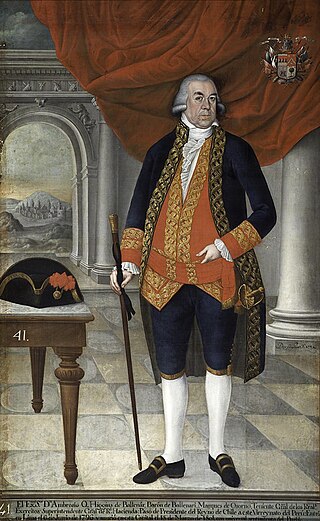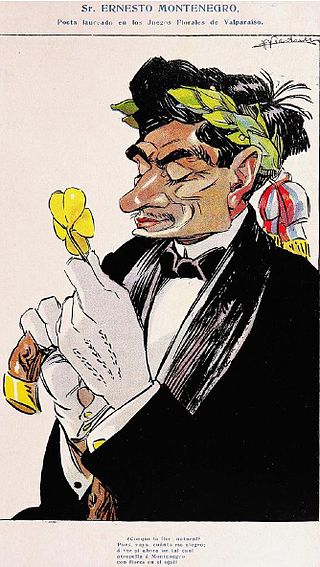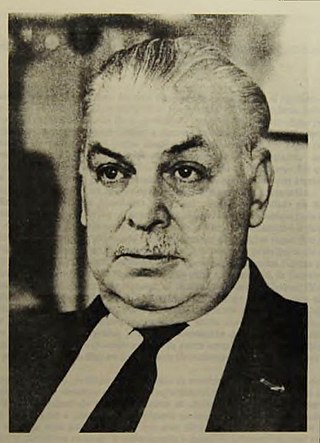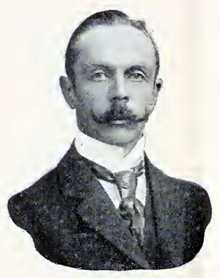
The Diaguita people are a group of South American indigenous people native to the Chilean Norte Chico and the Argentine Northwest. Western or Chilean Diaguitas lived mainly in the Transverse Valleys which incised in a semi-arid environment. Eastern or Argentine Diaguitas lived in the provinces of La Rioja and Catamarca and part of the provinces of Salta, San Juan and Tucumán. The term Diaguita was first applied to peoples and archaeological cultures by Ricardo E. Latcham in the early 20th century.

Ricardo Froilán Lagos Escobar is a Chilean lawyer, economist and social-democratic politician who served as president of Chile from 2000 to 2006. During the 1980s he was a well-known opponent of the Chilean military dictatorship and astounded contemporaries in 1988 by openly denouncing dictator Augusto Pinochet on live television. He served as Minister of Education from 1990 to 1992 and Minister of Public Works from 1994 to 1998 under president Eduardo Frei Ruiz-Tagle before narrowly winning the 1999-2000 presidential election in a runoff against Independent Democrat Union (UDI) candidate Joaquín Lavín. Lagos was the third president from the center-left Coalition of Parties for Democracy to have governed Chile since 1990. He was succeeded on 11 March 2006 by Socialist Michelle Bachelet, from the same coalition. From 2007 to 2010 he served as a Special Envoy on Climate Change for the United Nations Secretary-General Ban Ki-moon. Lagos made an unsuccessful bid to run for president in the 2017 Chilean general election.
Ricardo Francisco Rojas Trujillo is a Chilean football manager and former footballer who played as a centre-back.
Tucapel is a town and commune in the Bío Bío Province, Bío Bío Region, Chile. It was once a region of Araucanía named for the Tucapel River. The name of the region derived from the rehue and aillarehue of the Moluche people of the area between the Lebu and the Lleulleu Rivers, who were famed for their long resistance to the Spanish in the Arauco War. Tucapel is also the name of a famous leader from that region in the first resistance against the Spanish mentioned in Alonso de Ercilla's epic poem La Araucana. Formerly belonging to the Ñuble Province, in the Yungay Department. Near the town of Tucapel is the Plaza de San Diego de Tucapel. The capital of the commune is the town of Huépil, moving the municipality from Tucapel in 1967. In Mapudungun the name Huépil means "To seize or to take by force".

Ricardo Andrés Lagos Weber, son of former Chilean president Ricardo Lagos, is a politician who served as the Ministry General Secretariat of Government of Chile in the administration of former President Michelle Bachelet after having worked for Bachelet's 2005-2006 campaign. He is trained in law and economics, and has served the majority of his government career in economic positions. He was also an organizer and the senior representative for Chile at the Annual Meeting of APEC held in Chile in 2004, in addition to being one of the architects of the free trade agreements that Chile signed with the United States and the European Union as the head of the Foreign Ministry's Department of Trade Policy. He is a member of the Party for Democracy (PPD). Between March 2016 and March 2017 he was President of the Senate of Chile.
Gualemo was the name by which the Spaniards knew the tribe of Promaucaes inhabiting the Lontué River valley of Chile and was the name early Spaniards gave to that region. Gualemo is also the name of one of the arms of the lower Lontué River that created several islands of fertile alluvium that existed near the confluence with the Teno River as late as 1899.
Aillarehue or Ayllarehue ; a confederation of rehues or family-based units (lof) that dominated a region or province. It was the old administrative and territorial division of the Mapuche, Huilliche and the extinct Picunche people. Aillarehue acted as a unit only on special festive, religious, political and especial military occasions. Several aillarehues formed the Butalmapu, the largest military and political organization of the Mapuche.
Pilmaiquén or Pilmayquen is a riachuelo in the commune of Cañete in Arauco Province in the Bío Bío Region of Chile that flows southwest towards the coast of the Pacific Ocean, to the northwest of the city of Cañete. Its course is short but of great volume and traverses a small valley between wooded mountainous areas where it joins the Licauquén River. This valley was a Moluche rehue of the Tucapel aillarehue and the homeland of the Toqui Caupolicán who commanded the Mapuche in the first revolt against domination by the Spanish Empire.
Butalmapu or Fütalmapu is the name in Mapudungun for "great land", which were one of the great confederations wherein the Mapuche people organized themselves in case of war. These confederations corresponded to the great geographic areas inhabited by the Mapuches in Chile.

Hernán del Solar (1901–1985) was a Chilean critic, essayist, poet, novelist and creator of children 's stories Chile. He was awarded the National Prize for Literature in 1968. He won the Chilean National Prize for Literature in 1968.
Quilacahuín was a Huilliche aillarehue, that is a confederation of familial clans, of the Chawra kawin Butalmapu located south of the Bueno River, between the Rahue River and the sea, in southern Chile.
Ricardo Mariano Dabrowski is an Argentine former football player and manager. He played as a forward for clubs of Argentina, Chile and Mexico.

Leonardo Iván Véliz Díaz is a Chilean former footballer who played as a left winger for Everton, O'Higgins, Unión Española and Colo-Colo of Chile and in the Chile national team in the 1974 FIFA World Cup in Germany.

Ambrosio Bernardo O'Higgins y O'Higgins, 1st Marquess of Osorno born Ambrose Bernard O'Higgins, was an Irish-Spanish colonial administrator and a member of the O'Higgins family. He served the Spanish Empire as captain general of Chile (1788–1796) and viceroy of Peru (1796–1801). Chilean independence leader Bernardo O'Higgins was his son.
Mapuche medicine is the system of medical treatment historically used by the Mapuche people of southern Chile. It is essentially magical-religious in nature, believing disease to be caused by supernatural factors such as spells and curable by treatments based on rituals, thermal waters and herbs. Knowledge of medicinal herbs is one of the best-known elements of Mapuche medicine and is still used today.
Chilean electronic music refers to the electronic music genre and its subgenres produced in Chile or by Chileans.

Ernesto Montenegro was a Chilean journalist and writer associated with the Generation of 1912.
The origin of the Mapuche has been a matter of research for over a century. The genetics of the Mapuche do not show overly clear affinities with any other known indigenous group in the Americas, and the same goes for linguistics, where the Mapuche language is considered a language isolate. Archaeological evidence shows Mapuche culture has existed in Chile at least since 600 to 500 BC. Mapuches are late arrivals in their southernmost and easternmost (Pampas) areas of settlement, yet Mapuche history in the north towards Atacama Desert may be older than historic settlement suggest. The Mapuche has received significant influence from Pre-Incan (Tiwanaku?), Incan and Spanish peoples, but deep origins of the Mapuche predates these contacts. Contact and conflict with the Spanish Empire are thought by scholars such as Tom Dillehay and José Bengoa to have had a profound impact on the shaping of the Mapuche ethnicity.

Humberto Fuenzalida Villegas (1904–1966) was a Chilean geologist, paleontologist and geographer. Fuenzalida headed in turn the geography and geology departments of the University of Chile, being also founder of Sociedad Geológica de Chile, a professional society grouping Chile's geologists. In 1938 he took charge of the geological and paleontological collection of Chilean National Museum of Natural History by request of Ricardo E. Latcham. In 1948 he became director of the museum holding that post until 1964 when he was succeeded by Grete Mostny. Fuenzalida championed the establishment of a geology degree in the University of Chile, leading a successful effort in 1961.
Latcham is a surname. Notable people with the surname include:








